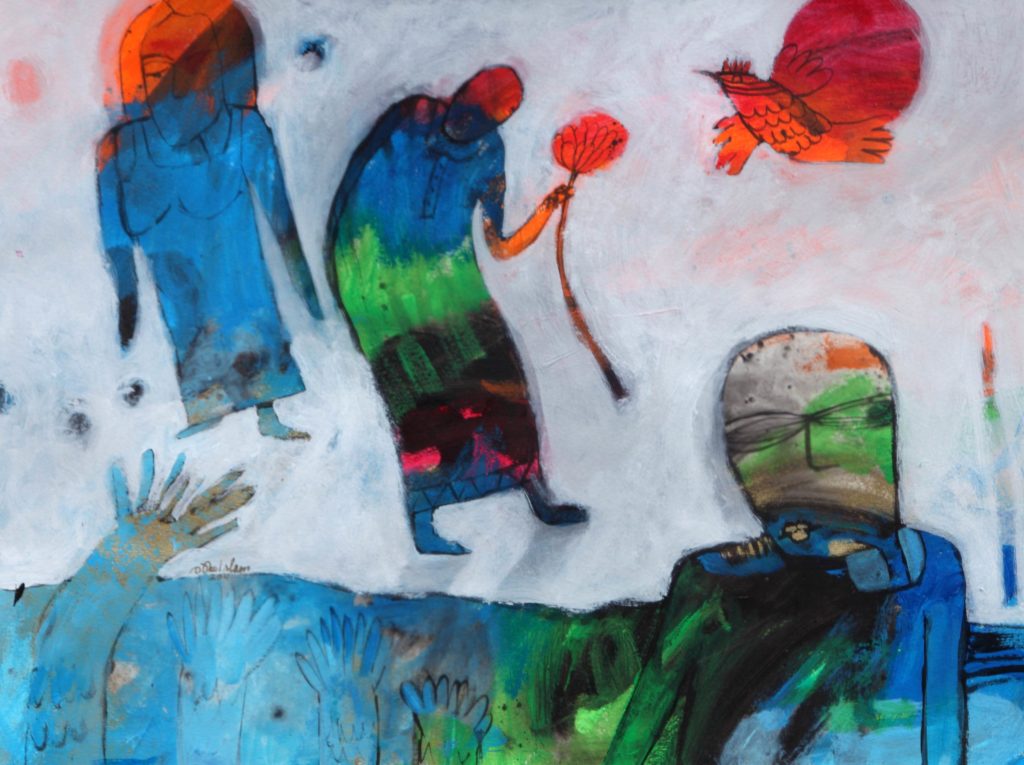Courtesy of the Hindiyeh Museum of Art
 ISLAM KAMIL ALI
ISLAM KAMIL ALI
UNTITLED (2011)
47 x 62 CM, ACRYLIC ON CANVAS
Courtesy of the Hindiyeh Museum of Art
 ISLAM KAMIL ALI
ISLAM KAMIL ALI
UNTITLED (2011)
47 x 62 CM, ACRYLIC ON CANVAS
Translated by ROBIN MOGER
Not many of us knew Sharif. He had been gone from the village for more than thirty years, and the few times his name came up, the person in question would glance around and lower their voice almost to a whisper. Men’s heads would cluster together in brief and hasty conference. And should his father, Sheikh Abdennabi Wadd Saleh, appear at the head of the alley and walk their way, or his mother, Hagga Amina Bint Suleiman, approach the store, they would fall silent or change the conversation.
Excerpted from BARKER HOUSE, the new book by David Moloney, out now from Bloomsbury.
I work alone on the Restricted Unit in the Barker County Correctional Facility in New Hampshire. It’s a semicircular room, the curved wall lined with nine cells. Most of the day, the inmates press their faces to scuffed windows, silent. There are no bars. The architects went with rosewood steel doors. Rosewood: the color of merlot.
On Tuesday and Saturday mornings I supervise inmates while they shave in their cells. We don’t leave them alone with razors. I try to talk with them, like we’re just in a locker room, hanging out while one of us shaves. Some don’t talk. I imagine that, cutting their whiskers before a scratched plastic mirror, they think of the other mirrors they’ve shaved in front of, the rooms those mirrors were in, and maybe that keeps them silent.
Tuesday. Inmate Bigsby is shaving. He’s talkative. Not crazy crazy, but it’s always tough to tell.
“This scar, right here,” says Bigsby as a stroke down his cheek reveals a cambered wound, “was when I broke from the sheriffs.” The single blade on Bigsby’s flimsy disposable couldn’t shave a teenage girl’s happy trail, but the inmates make do and pull at their skin.
There is a common perception—you see it in movies—that inmates don’t want to talk about their crimes. But they do. They depend on their past, their scars, to prove they were something else. In what standing, that doesn’t matter.